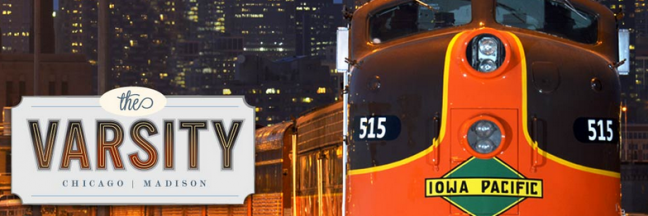For the first time in more than 40 years, a passenger train will connect Madison and Chicago, hoping to remind passengers of the “golden age” of rail while taking Badgers fans to football games.
Sarah Munley, Pullman Rail Journey’s marketing director, said the company is offering three departures this fall but hopes to provide more intercity travel in the future.
The trips will be a two-day Oct. 3 trip from Chicago to Madison, an Oct. 4th same-day trip from Madison to Chicago an Oct. 11 same-day trip from Chicago to Madison.
Two of the trips will help Badgers fans get to University of Wisconsin football games, with the Oct. 4 trip giving a bus option for those wanting to see the Badgers take on Northwestern. The Oct. 11 trip, meanwhile, will be in part for Chicago residents wanting to see the Badgers play Illinois at Camp Randall.
Pullman thought locomotive travel between Madison and Chicago was a natural fit since there is such a large number of University of Wisconsin alumni living in the Chicago area, Munley said.
“Pullman aims to offer a first-class transportation service to alumni traveling back to campus, especially to see football games and to have a getaway in Madison,” Munley said. “On the reverse side, [it’s] giving people from the Madison area, from the capital city of Wisconsin, an opportunity to travel to Chicago in a leisurely way rather than driving.”
The train will take roughly four hours to get from one city to the other, offering food and drinks along the way as well as free Internet. First-class riders will pay $199, including food and drinks, while coach tickets cost $99, with food and drinks available separately. Those prices are for round-trip tickets.
The luxury rail service will benefit the Madison area in other ways than offering accessible transportation to Chicago, said Peter Rafferty, a UW program manager who is an expert on transportation. Since Chicago is a major hub in the great lakes region, having a rail connection directly to Madison would substantially benefit economic development in Madison and long-term land use investments, he said.
Unlike other modes of transportation, he added, the train is an investment that requires a deeper commitment between both the company and residents, Rafferty said.
“One thing about rail, it really is as much as a land use investment and economic investment as it is just transportation,” Rafferty said. “Unlike buses, when you plan your rail system, you really are committing and investing in those routes.”


